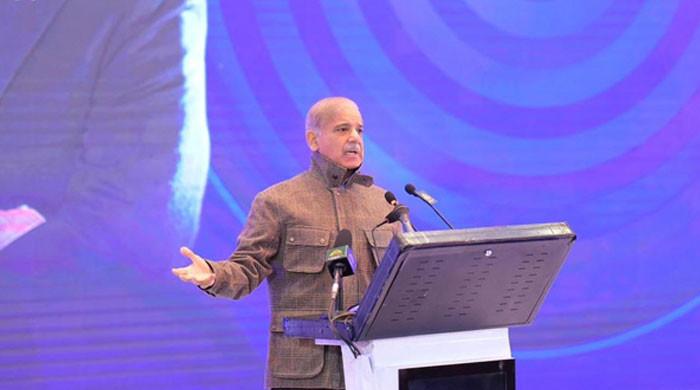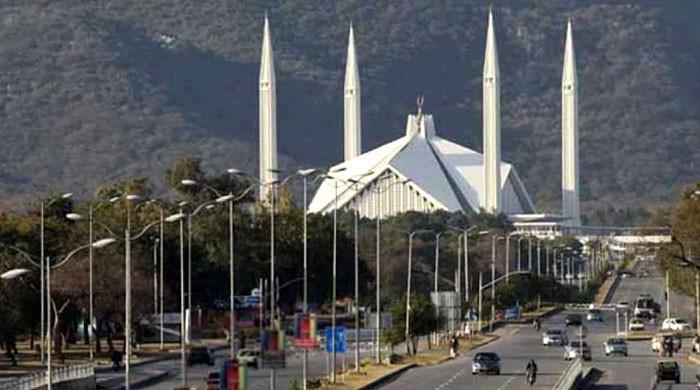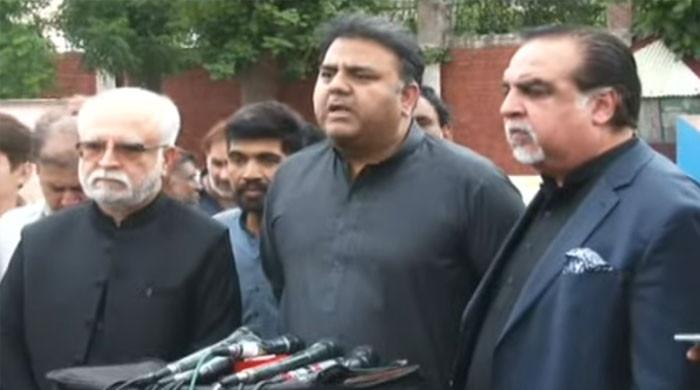Cabinet gives nod to two cyberspace security bills
Govt believes PTA, Pemra have been unable to scrutinise, regulate social media, online media sites
July 27, 2023

- E-Safety Bill 2023 aims to regulate digital media platforms.
- Personal Data Protection Bill 2023 aims to protect personal data.
- Both bills elicit strong reservations from digital rights activists.
ISLAMABAD: Given the government's belief that regulators such as Pakistan Telecommunications Authority (PTA) and Pakistan Electronic Media Regulatory Authority (Pemra) have been unable to scrutinise or regulate social media and online media sites in the country, the federal cabinet has approved two new bills for the purpose, The News reported Thursday.
The new bills are the Personal Data Protection Bill 2023 and the E-Safety Bill 2023.
The E-Safety Bill 2023 reportedly aims to bring digital media platforms under strict regulations, whereby it is proposed that a separate regulatory body be established to penalise those who commit any violations.
This bill will regulate web-based channels and online news websites and proposes establishing a separate regulatory. This regulatory will be empowered to impose a penalty if a web-based channel or online media outlet airs or publishes any information maligning someone.
On the other hand, the Personal Data Protection Bill 2023 will govern the collection, processing, use, and disclosure of personal data and establish and make provisions for offences relating to violation of the right to data privacy of individuals by collecting, obtaining, or processing of personal data by any means.
'Personal data' means any information that relates directly or indirectly to a data subject who is identified or identifiable from that information or from that and other information in the possession of a data controller and/or data processor, including any sensitive or critical personal data.
Under the proposed bill, personal data will only be collected, processed and disclosed as necessary and in compliance with the provisions of the approved law.
According to the bill, within six months of the passage of the law, the federal government is to establish a commission known as the National Commission for Personal Data Protection (NCPDP) of Pakistan.
However, the proposed legislation — both bills — have elicited strong reservations from digital rights activists and advocacy think tanks.
Internet advocacy group Bolo Bhi, in a statement issued on Wednesday, has said that "legislation prepared in secrecy and passed in haste disregarding input and clear reservations, serves no protective purpose but reeks of nefarious designs to further curb the rights and liberties of citizens", adding that "these bills must not be passed."
Bolo Bhi has said that both the bills, "if moved in the National Assembly of Pakistan, [should] be deferred to a standing committee for further deliberations, which should be open and transparent.."
In a tweet, PPP's Farhatullah Babar has also criticised how the digital bills have been approved by Cabinet, writing that it is "wrong for a coalition government to push through far-reaching digital related legislation hurriedly [and] in [an] opaque manner in its last days. Not taking on board even coalition partners let alone all stakeholders [is] deeply disturbing".
Journalist, digital rights, and civic responsibility advocate Farieha Aziz tweeted, "Pakistan's Personal Data Protection Bill 2023 must not be passed in haste or we will end up with another PECA. Industry and rights groups have both expressed reservations. While input was provided to the ministry over the years, substantive issues remain."
The bills will now be moved to the Cabinet Committee for Disposal of Legislative Cases (CCLC) and then tabled in Parliament.









